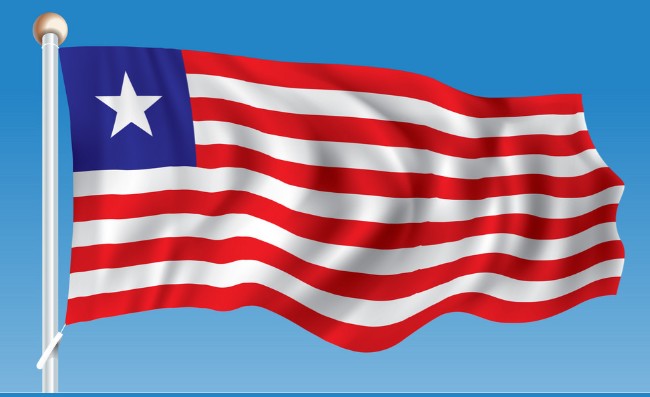Separation of powers for functional governance

By Jarwinken Wiah
Since Liberia’s independence on July 26, 1847, the question of separation of power has not been emphasized on governance. This has created a dysfunction governance system. This is also why majority of the Liberian population has little trust in governance, rule of law and the justice system in the country. Their livelihoods rely at the mercy of nature.
The majority also has no knowledge and the know-how to challenge or question the limit of government’s authority in line with the Liberian Constitution. For these reasons, rule of law, justice, gender equality, accountability, transparency and inclusion have not formed core of governance in the country. The big question is, how can separation of power and checks and balances in post conflict Liberia become a reality?
In 1821 this 43, 000 square miles of piece of land, called Liberia was identified to serve as the home for freedom. This was the reason that allowed some ancestral brothers and sisters to return to their inherited roots from slavery in the United States. They are called Americo-Liberians or Congau.
This was how the official seal of Liberia become the “Love of Liberty Brought US Here” on July 26, 1847. This phrase does not mean who was there first and who was there last. It simply means Liberia’s formation was based on the promise of freedom, love, equality, rule of law, justice and equal learning and empowering opportunities for all. Yes, this promise is still alive. Achieving it is the challenge for all Liberians.
The truth is Liberia is a beautiful country bountiful with rich natural resources including golds, diamond, timbers, mountains and others that can lift Liberians up individually and collectively. The only challenge is for Liberians to figure out with competing ideas regardless of ethnicity, religion, region or country of origin, disability and ascribed status.
Because of this, We, Liberians, need to stop the madness of fighting among ourselves because aside from gold, diamond, timber and other natural resources , the country also has rivers in including Cavalla, Mano, Sinoe, Mersurado, St Paul, Lofa, Farmington, St John, Timbo, Cestos, Dugbe, Grand Cess, Sehnkwehn, Dubo, Junk and Mafa River as well as the Atlantic Ocean.
Liberia also has mountains including Mount Richard which borders with Ivory Coast and Guinea, Wologizi in Lofa County, and Bong Range in Bong County, among others. With these resources, it does not make sense for us to fight among ourselves.
We need to work together in the framework of rule and law and justice for all. We need to make sure no one is above the rule of law and justice so teenage girls and boys will not give up their dreams. It also means teenage girls will not give up bodies for school fees and other livelihoods needs. We need to come together to give all our children the support and resources they need to make sure that “Love of Liberty Brought Us Here”, is a reality for everyone.
This also means that when no one is above rule of law and justice regardless of his or her position of power there will be accountability and transparency that will allow for the use of the country’s resources for everyone to benefit and not just for the few in line with the promise of “Love of Liberty Brought Us Here.”
There is no doubt, the problem is the political will in Liberia is weak and the institutions are dysfunctional and corrupt. For this reason, it will require the promotion of strong grassroots advocacy and legal empowerment programs to achieve unity and equal empowering opportunities for everyone.
Also, there is no doubt, even the presidency, lawmakers, some judges, some police officers, some prosecutors, and even some journalists are part of the problem.
It is apparent that because of what majority of the population has been through, the country cannot count on the same people who have been in charge all along to promote reform within, unless there is also strong grass-root involvement from all the 134 administrative districts to bring their issues at the table.
There has been a high degree of social disruption, chaos and violence in this beautiful country. For this reason, there is a critical need to push for programs to prevent the renewal of flash points and unchecked violence.
What Liberia needs is for all the citizens to work together to commit their leaders and institutions to the rule of law, to create checks and balances for justice and security for all.
This require ordinary citizens to engage in civic education programs as part of the peace and trust building process.
The truth is unlike formal rule of law efforts in transitional countries, post-conflict interventions like Liberia should not only strengthen pre-existing institutions because the current structures and institutions have been sources of the conditions that majority of the population is facing today.
Reinforcing the current structures is not enough. There is a dire need to create new mechanisms that promote peaceful, fair, transparent management of disputes over resources.
When we do all these things then livelihoods for majority of the population will not be at the mercy of the nature. Then it also means Liberia will be able to grow food. Then it also means no matter one’s job he or she will be respected in the society because every job including a sweeping job and a palm wine tapping is as important as the job of a minister or senator.
At the end of the project, Liberians will for once talk ideas rather than wars to pursue their founding purpose. They will focus on acquiring the knowledge and skills they need to these ideas into solutions.
Jarwinken Wiah is the Co-founder and Executive Director of the Emancipation Movement of Liberia Inc, (EMOL). He is also a Case Manager for Benson County Social Services in North Dakota, USA.

